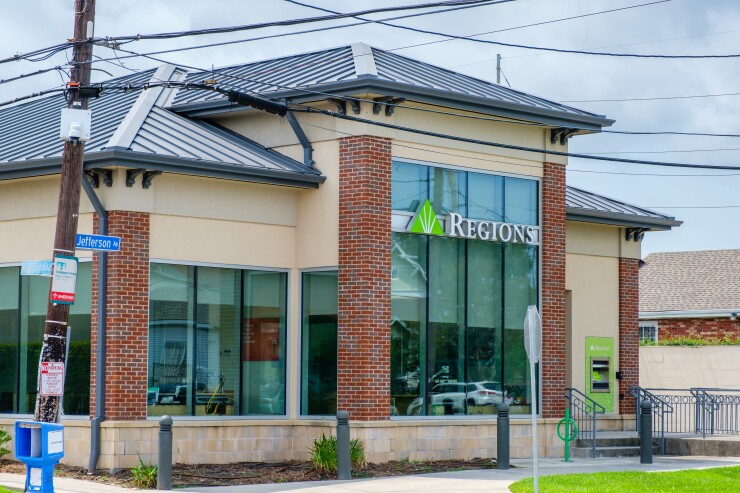
David Turner, chief financial officer of the $156 billion-asset bank, told analysts Friday during the company's second-quarter earnings presentation that
"Maybe there's some tailoring," Turner said, but based on a 6% threshold,
"It's not something that is pretty easy to overcome," Turner told analysts. "We don't think it's necessary, but we don't get to make the rules. We just have to adapt and overcome."
The potential changes Turner was referencing could be part of a Federal Reserve proposal expected next week related to the final implementation of the Basel III international regulatory framework, also known as the Basel III endgame.
A
Policymakers and banking industry officials have debated back and forth about whether and by how much existing rules should be toughened to
Key issues of the debate have circled around
The Birmingham, Alabama, bank will be able to "overcome whatever it is that we have to [meet]" if regulators enact new capital requirements, Turner said during Friday's earnings call.
"We think the Fed's going to give us all the time to adapt to whatever those changes are going to be without any major disruption," Turner said.
Regions was among the hardest-hit regional lenders amid sudden deposit runoffs and other volatility that slammed the sector earlier this year. At the end of the first quarter, Regions reported a
The bank's total deposits declined further in the second quarter — to $127 billion — but at a slower pace. Deposits at June 30 were 1% lower than on March 31 and 8% lower than in mid-2022.
An analyst's question to Regions about its exposure to office-related commercial real estate assets highlighted ongoing concerns about underlying risks that could be present throughout the banking industry.
The bank holds a $1.7 billion office portfolio, which consists of "well-secured" single-tenant assets with 82% considered investment-grade, Regions CEO John Turner told analysts.
He said that the bank's multi-tenant office assets are based mostly in Sun Belt states and are "well diversified geographically."
Regions reported net income of $581 million at the end of the second quarter, which was a 5% decline from the first quarter and flat compared with the same period last year. Net interest income fell by 2.5% during the second quarter to $1.4 billion but increased by 25% compared with the year-earlier period.
Noninterest income climbed by 8% to $576 million during the second quarter but declined by 10% compared with the second quarter of 2022. Regions cited gains in its capital markets and credit card businesses that were offset by declines in other categories which include service charges on deposit accounts.






